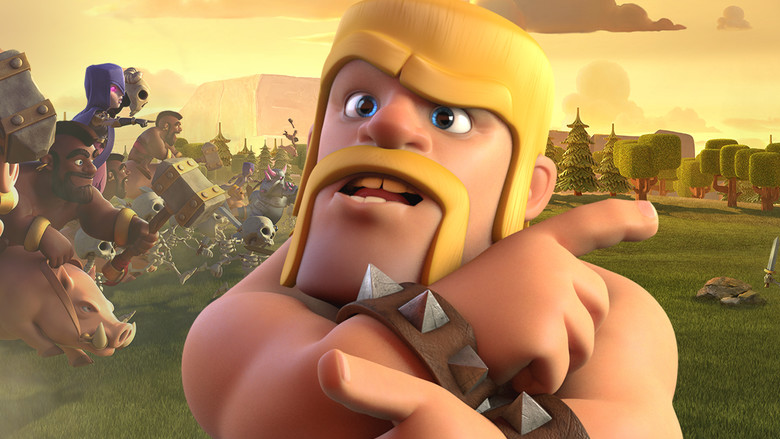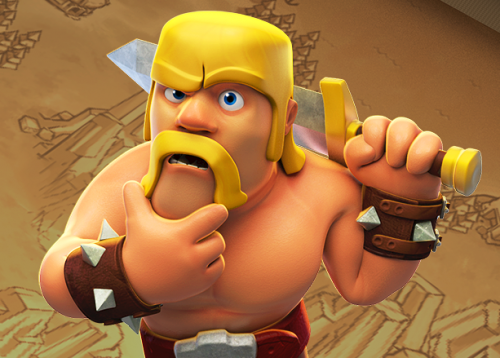Big changes in Clash of Clans: why did Supercell go for them?
In February, material appeared on our pages criticizing the latest innovations in Clash of Clans. Today we are publishing a response article reflecting a different view of the changes in the gaming economy of the highest-grossing mobile game of last year.
At the end of 2015, Supercell released a major update to Clash of Clans. It caused a mixed reaction from the players. The update included, along with new content (in particular, from the Town Hall of level 11), a number of gameplay innovations that seriously affect the gameplay.
The previous material defended the position of the part of the community that did not like the changes, which believed that the changes had a negative impact on the game. This publication stands on the opposite: the update did not destroy, but, on the contrary, fixed the gaming ecosystem.
The situation before the update
Until December 10, when the update was released, the player was given a shield (temporary protection from attacks) in case of destruction of the Town Hall (the main building in the game).
Throughout the years of the game’s existence, this has contributed to the development of unspoken relationships between players, which can also be called the “cups instead of resources” mechanics.
Those players for whom resources were more important than positions in the ranking (for short, let’s call them “accumulators”) took Town Hall out of the walls. They did this so that low-level players, aimed at raising their rating, could earn cups on them. Low-level players received cups, but were left without resources that they could not take due to their weakness.
In the event that the Town Hall was not carried out beyond the walls, there was a high risk that the base would be attacked by an enemy already corresponding to the level, which would take the accumulated resources.
As a result, those for whom it was important to save resources by taking the Town Hall outside, in most cases saved their resources from looting at the cost of a small loss in cups, and hunters for cheap cups received the desired rating.
By the way, when attacking low-level players, the accumulators lost a smaller number of cups than if they were attacked by an equal player. In the latter case, their base with a high probability would be destroyed not by one, but already by two or three stars. Accordingly, the attacker would lose more cups.
And now let’s think about how this state of affairs affected the ecosystem.
If most of the players hoarding resources regularly took Town Hall outside the walls and did not lose resources, then where did the attackers get resources from (it does not matter whether they were hunters for cheap cups or not)?
That’s the thing, there was no place to take it from. Players who preferred a more aggressive type of game, implying the accumulation of resources through raids, found themselves in an unenviable role. They simply had to spend a lot of time in the “clouds” (the screensaver of searching for a base for an attack), trying to find a base with an adequate amount of resources (with one that at least compensated for losses).
As a result, a situation was created when passionate players could well lose interest in the game. Resources are going to search, there are no “fat” bases, how to make up for losses is unclear.
Solving the problem
What have the developers done to change this situation?
They went two ways at once. On the one hand, they tried to stir up the drives, on the other hand, they offered significant bonuses to raid fans (in fact, this can be called one solution — through bonuses to active players, the drives are stimulated).
The main tool was a significant modification of the protection system.
Before the update, in case of destruction of 50% of the base or Town Hall, a defeat was counted and a shield was given. The latter, however, was given for a smaller number of destructions. How many hours it was given depended on the % of destruction.
While the shield was active, the player could not be afraid of enemy attacks and calmly accumulate resources to improve the base. The disadvantage was that the player could not attack without losing his shield.
After the upgrade, the shield is issued after the destruction of 30%. Only the Town Hall has stopped covering these 30% (how much the shield is given, as before, depends on how much% of the base is destroyed — from 12 to 16 hours).
So such tactics have lost their meaning. Hunters for cups, of course, as before, can destroy it, but they still can’t get to the resources. The drives, in turn, do not get the desired shield for a long time.
Plus, the players got the opportunity to attack while being protected by a shield. However, this reduces the protection time. Each subsequent attack “from under the shield” reduces its effect by an even greater number of hours than the previous one.
This measure encourages the accumulators who have been defeated to take revenge on the offenders without losing protection.
But the innovation is also important for attacking players. At high levels in the game, it is fundamentally important to attack without getting a retaliatory raid for a short period after the attack.
Thanks to the ability to attack from under the shield, active players can, after receiving their 12-16 hours, make three retaliatory attacks (the first attack from under the shield is fined 3 hours of protection, the next 4 hours, another 5 hours), without fear that someone will stir up their base again in between a series of raids.
Thus, an active player can relatively quickly collect the resources required to improve anything.
In addition to the modified shield, Supercell has added a “Village Guard”, which is issued for a short time (from 30 minutes to 4 hours, depending on the league in which the player is located). It is issued in two cases:
- to the player after an unsuccessful attack on his village;
- after the shield expires.
The main feature of this type of defense is that the duration of the guard does not decrease from the fact that the player makes attacks. In other words, a player can attack any number of times during the mentioned period without fear of a fine.
The guard allows you to increase the series of attacks, and also encourages you to make small in-game purchases.
Why?
Imagine that you have made three raids in a row, you no longer have a shield, but you have at least half an hour of guards (if you are in the Master I league or lower), who will not be fined. This is exactly the moment when you can make an unlimited number of attacks — still without fear of retaliation. But there is one problem — to recruit a strong army in such a short time, to cook spells, and also to give the heroes a rest after the last attack, it is possible only if you spend a few crystals to accelerate.
This situation creates a strong temptation for players to spend real money on crystals.
Results
In theory (unfortunately, there are no figures confirming the following conclusions), the ban on the mechanics of the “cup exchange” should have led to a solution to the problem of a long search for “victims” — rich bases that were previously regularly hidden behind the shield, thanks to the “giveaway game” with cup hunters.
This was also supposed to lead to an improvement in the work of the tool of leagues that segment users by strength, since the ratings of those who had previously won cups at the expense of the Town Hall taken out of the walls, but really did not correspond to their positions, should have fallen significantly.
As for the drives, for their “activation”, in addition to the new protection system, which makes raids, as well as being under the shield more comfortable, several additional solutions were introduced in January of this year.
In particular, Supercell introduced a Treasury, a type of storage of part of the resources that cannot be stolen (maximum 3% of the amount and only in case of destruction of Clan Castle).
At first glance, this is compensation. They say that those players who were afraid of raids looting stocks can now “hide” some of the resources so that when it is necessary to build something, they can pull them out and sit out further.
But they will not be able to do this. Only resources from clan wars and Star Bonuses go to the treasury.
Star Bonuses is another innovation, a system for issuing resources for committing several successful attacks per day. If a player gains 5 or more stars per day during attacks, he receives a certain amount of resources (depends on the player’s league).
So it turns out that if a player wants to get resources that will not be taken away, he must attack regularly — literally every day.
Conclusion
Supercell, of course, faced a negative reaction from the gaming community after the release of the update (a very small part of it, as Supercell community manager Marika Appel noted at White Nights Helsinki 2016). But the measures taken by the company were necessary to solve the existing problems.
This material was written on the basis of Viktor Pashin’s comments provided by App2Top.ru
The editorial board thanks Alexander Pashin for his help in organizing the material




